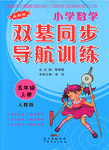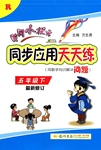题目内容
根据短文内容,从短文后的选项中选出能填入空白处的最佳选项。选项中有两项为多余选项。
How to prepare for the SAT or ACT
Plan your study
You will need at least 6-8 weeks of preparation time. 1. .—Therefore, it is better to work on them first. However, do not spend too much time trying to master them as you might loose out (松懈) on preparing for those topics that you know well. Prepare a daily schedule and set a target to keep yourself motivated and focused. This is the most efficient way of studying.
Read books and obtain study material
There are many books that provide tips, tricks, study guides, and practice problems. You can either buy one or borrow it from your local library. 2. . The ACT for Dummies and The SAT for Dummies are highly informative and provide a lot of tips and tricks to deal with the exam. However, mostly refer to the official SAT and ACT books.
3.
Yes! Make sure you know all the rules and regulations well while preparing for it. You shouldn’t have to waste even a second on reading the rules again and again. 4. , know the rules of each section. This will save time which you may need in solving some tough questions.
Review basic algebra
5. , review the basic algebra problems. They will come handy while solving problems. Go through the sample tests papers to get an idea of the kind of questions that are asked.
A. Whichever test you prepare for
B. Then you know your weaknesses well
C. It is quite an important time for any exam-taker
D. If you’re not a math person
E. Read all those instructions first
F. You can also check out Amazon for the books as well
G. Know your test well beforehand
 双基同步导航训练系列答案
双基同步导航训练系列答案 黄冈小状元同步计算天天练系列答案
黄冈小状元同步计算天天练系列答案



 you love with all your heart isn't really the pain you can ever overcome.Radha lost her baby, her only means to live. She saw her child getting killed and the accidentwas terrible. One lonely night, she was walking down the street to get a breath of fresh air withher child hugged tight in her arms.
you love with all your heart isn't really the pain you can ever overcome.Radha lost her baby, her only means to live. She saw her child getting killed and the accidentwas terrible. One lonely night, she was walking down the street to get a breath of fresh air withher child hugged tight in her arms.